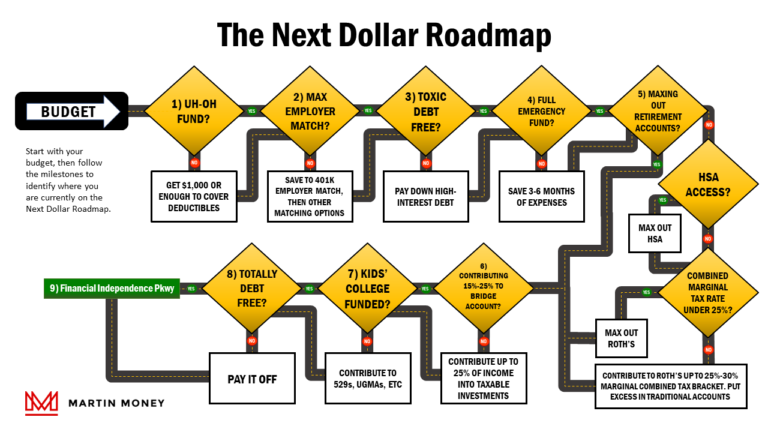Can I Open An HSA on My Own?
HSAs can be opened directly with a custodian of your choice. Choosing the HSA that is best for you will depend on your personal needs as well as whether or not you have access to a plan through your employer. You can open multiple HSA accounts as long as you don’t exceed the annual contribution limits.
Did you know that nearly 72 million Americans own or are covered by a Health Savings Account (HSA)?
That’s a little better than one in every five.
Did you also know that about 12% of American employers offer access to an HSA plan?
That’s a little under one in every eight.
Unless a very high percentage of people working for very large companies are using HSAs (very unlikely), this means many Americans are gaining access to HSAs by other means.
Unlike 401(k) plans which can only be opened and operated by an employer, HSAs can be opened directly by anyone who is covered by a high deductible health plan (HDHP).
In this post, we’ll talk about the pros and cons of opening an HSA directly with a custodian as well as several options for doing just that.
Benefits of Employer Enrollment
If you have access to an HSA through your employer, you should consider opening your account through their plan first.
Here are a few reasons why:
1) Extra Tax Benefits
All HSAs are triple tax-advantaged, meaning that the contributions, earnings, and withdrawals are all tax-free if the funds are used for a qualified medical expense.
However, if you contribute to an employer sponsored plan your contributions can be made through a payroll deduction.
This means the funds are moved before income taxes, but also before withholding for Social Security, Medicare, and Unemployment Insurance.
That’s an additional 7.65% or more in tax savings that you can’t get if you contribute money that has already been taxed as payroll.
2) Employer Contributions
If your employer also offers to make contributions to your HSA on your behalf, then it gets even more difficult to pass up.
That’s free money. You probably shouldn’t turn it down.
Furthermore, since it is a triple-tax-advantaged contribution, mathematically it’s even more powerful than those directed to a 401(k).
Some employers make contributions just for signing up for their HDHP plan.
Others offer incentives for making healthy choices or getting regular check-ups.
And some do both.
3) They Lose Control
If you want to avoid opening an employer-sponsored plan because you’re afraid they’ll take it from you if you leave the company then you are worried about nothing.
HSA money is yours. Period. They can’t take it back.
This is distinctly different from FSAs which require any unused funds to be surrendered back to your employer at the end of the year.
Fear not. When it goes into the HSA, it is yours to keep.
The only reason I can think of to skip the employer-sponsored plan is if your employer offers no incentive to use their plan.
That is, no payroll deduction, no employer contribution, no help at all.
I can’t say I’ve ever heard of such a thing, but the minute I make a far-reaching statement like “you should never skip your employer-sponsored plan”, I’ll be eating some crow.
I suppose if you want to invest your HSA and the employer plan only has expensive investment options, you could be better served to go out on the street and open your own.
Speaking of the street…
Benefits of Direct Enrollment
For those of you who have a really, really bad employer plan or for those of you who don’t have the option to participate through work, you can open an HSA directly.
The advantage of going this route is all the benefits of an HSA with complete control over the account.
And by complete control, I mean you have access to whatever investment options you want as opposed to choosing from the limited variety afforded in your employer plan.
It’s not that you really need access to the tens of thousands of available securities as much as it is to your benefit to find investments that won’t beat you to death with high expense ratios.
Another advantage could be having access to multiple accounts through one custodian.
If you already have a brokerage account, IRA, or old 401(k) with a specific company, you could open your HSA there too.
It’s just easier to have things in one place, isn’t it?
You Could Do Both
So maybe you really want total control over your plan, but you want the benefits of using your employer-sponsored plan too.
Well, have I got great news for you? You can have the best of both worlds.
There is no limit to the number of HSAs you can own. Open as many as you like.
There is, however, a limit on how much you can contribute to an HSA each year.
In 2023, individuals can contribute up to $3,850 and families can contribute up to $7,750 cumulatively in all their HSA accounts.
This means you could open an account through your employer, max out your benefits there, and then use any remaining contribution space to open another HSA through the custodian of your choice.
Now, before you try anything cute, no, you and your spouse cannot open separate HSAs and fully fund them.
But nice try.
The IRS has a rule that requires spouses to share the annual HSA contribution limit of $7,750, regardless of how their insurance shakes out.
So, even if one spouse insures the kids and opens an HSA with a family max contribution, the other spouse can’t also contribute an additional $3,850 through an individual plan of their own.
But, hey, you had to ask, right?
Where to Open an HSA Directly
There are an abundance of options for opening an HSA directly. Everything from huge investment houses to your small, local bank is on the table.
Instead of recommending anyone specifically, I’ll just give you a few nuggets to consider as you weigh your options.
1) How easy is it to gain access to the funds in the HSA?
Ultimately, an HSA is for medical expenses. Ideally, you’ll be able to pay these bills easily using a debit card.
Some accounts only provide an option for reimbursement. To me this is an unnecessary inconvenience, but you’ll have to decide whether or not it matters to you.
2) How convenient is it to manage your account?
Is there a user-friendly website or app available for you to access plan documents or statements?
If it is a headache to keep tabs on your account then you probably won’t do it.
Avoid providers that don’t have tools to help you fully utilize the capabilities of your HSA.
3) Investment options
When it comes to investment options, typically, the more the better.
There’s no reason to overcomplicate HSA investing. You’ll probably only need access to some basic index funds for diversification’s sake, but options are always welcome.
You also want access to investments that have reasonable expense ratios so your custodian doesn’t cannibalize your earnings.
Even if you don’t plan to use an HSA to invest, you should factor this into your choice. One day you could be looking for places to save your money from taxes and HSAs are an excellent option.
Wouldn’t it be convenient if your account was already in a place that provided solid investment choices?
4) What are the fees charged by the custodian?
Fees can vary broadly from custodian to custodian. Some accounts charge as a percentage of assets in the account while others charge a flat maintenance fee, and some others charge both.
Fees as a percentage of the account usually run from 0.25% to 1.00% while flat fees are normally between $25 and $50.
I wouldn’t let this be the primary driver of your decision, but you should ask yourself what you’re getting in return for your fee.
If there are features that appeal to you, you might be comfortable paying for them but this is a personal choice.
Conclusion
The rules for HSAs actually provide a refreshing level of flexibility when it comes to simply opening an account.
The employer-provided option is probably best, but there are many options available in the market at large that anyone can open assuming they have an HDHP.







